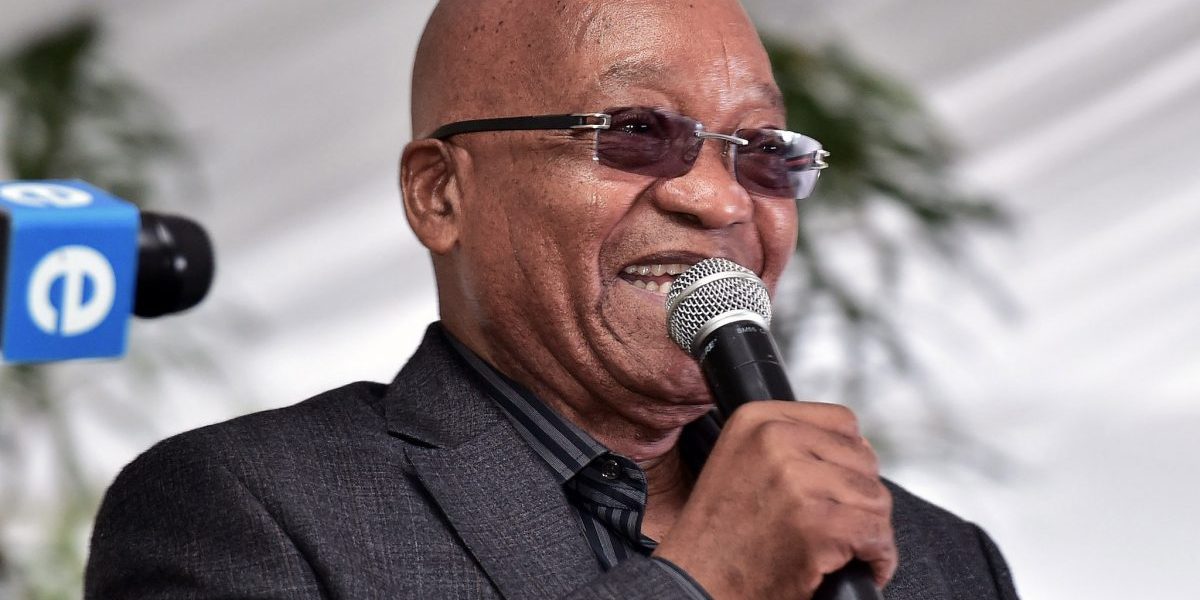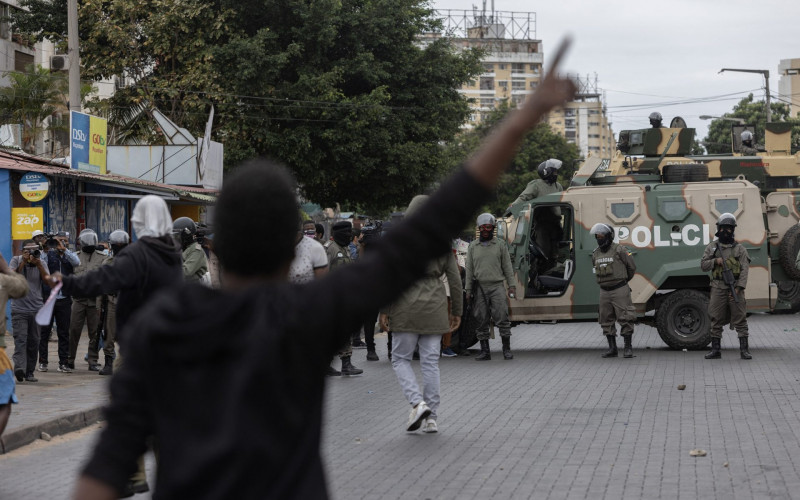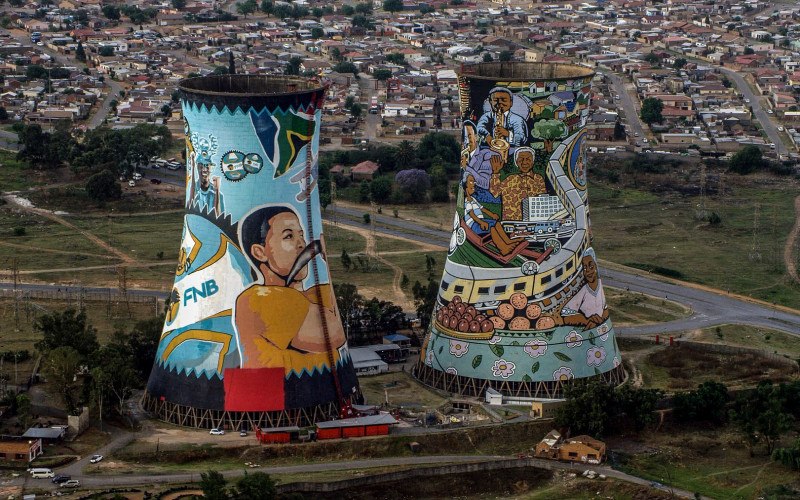The African National Congress is facing its worst political crisis since the former liberation movement came to power in South Africa in 1994.
At the centre of this predicament is the populist revolt against President Thabo Mbeki and in support of his former deputy, Jacob Zuma, whom he sacked last month.
Zuma, who is also deputy president of the ANC, was relieved of his state duties by the President following a damning high court judgment convicting Zuma’s friend and financial advisor, Durban businessman Schabir Shaik.
Zuma was not on trial, but his relationship with Shaik was. The judgment found that a series of payments (totalling about $150,000) made by Shaik on behalf of Zuma were intended to influence Zuma to benefit Shaik’s business.
Although Zuma did not give evidence, the judge also found Zuma had been party to a bid to solicit a bribe from French defence company Thales, one of the contractors in South Africa’s 1999 defence procurement package, a mammoth deal which continues to be dogged by allegations of corruption.
The judgment provided ample ammunition for Mbeki to act against his deputy. Zuma forced Mbeki’s hand when he refused private entreaties to step down and began mobilising political support in open defiance of the President.
Prior to the Shaik trial, Zuma had been regarded as the front-runner to succeed Mbeki when his second term came to an end in 2009. However, it was well known inside the ANC that Mbeki was strongly opposed to a Zuma succession.
While the President’s recent decision to fire his deputy received approval from the country’s business and political elite, Mbeki’s sustained mismanagement of discontent within the ruling party over his leadership style and policy directions have now come back to haunt him.
Despite a subsequent decision by the country’s prosecution authorities to charge Zuma with corruption – following the conviction of Shaik – the move has not been seen as vindicating Mbeki’s axing of Zuma. Instead, Zuma has become a rallying point for a somewhat disparate but powerful set of forces ranged against Mbeki.
Risky power consolidation
The roots of these divisions go deep, some stretching back to political camps that formed during the liberation period. Ultimately they draw their strength from Mbeki’s remote and exclusive leadership style: his centralisation of power under the presidency, his ruthless dispatch of potential political rivals and his refusal to compromise on key factors of policy.
As Anthony Butler, associate professor of politics at the University of Cape Town, has written, power under Mbeki has gravitated from society and party to state, from local and provincial spheres to national, from judiciary and legislature to executive, and from cabinet to presidency. He notes: ‘These institutional and political developments make the office of state president almost the only prize worth winning. Everyone wants a piece of the next president. No one dare leave such a powerful office to rivals.’ At the same time, it is a measure of Mbeki’s success in undermining such rivals that Zuma, whose personal instincts are traditional and conservative, is now seen as the candidate of the ANC’s left wing.
Also, the manner in which political opponents have been dealt with has laid the ground for suspicion about the motivation and bona fides for the case against Zuma. The late minister of security, Steve Tshwete, a key Mbeki ally, once went on national television and accused Mbeki’s three prominent rivals – Cyril Ramaphosa, Tokyo Sexwale, Mathews Phosa – of plotting a political coup, apparently to prevent them from contesting for party leadership.
Policy arenas where Mbeki has made foes include his support of Robert Mugabe’s regime, his controversial and damaging scepticism on AIDS, and on economic policy, where he has focused on the rapid creation of a black middle class within a framework of fiscal conservatism that has triggered serious job losses among low-skilled workers.
It is indeed ironic that support for Zuma is emerging at a time when the ANC has begun to publicly acknowledge the seriousness of corruption as a threat to national interest. But this is not as counter-intuitive as it might first appear. While Mbeki has arguably been correct in emphasising a rapid building of a black bourgeoisie as a means to greater social stability, he has not been seen to be duly worried about a few bad eggs finding their way into this class-based omelette.
A number of newly made millionaires appear to have sailed close to the ethical wind – mining tycoon Mzi Khumalo and former director general of communications Andile Ngcaba come to mind – but Mbeki has publicly defended such individual accumulation, asking if critics are only worried about empowerment being more ‘broad based’ because blacks are involved.
Indeed, in 2003 Mbeki launched a scathing attack on those in the media he termed ‘fishers of corrupt men’ who continued to raise allegations of corruption in the defence procurement package, accusing them of trying to entrench racist stereotypes of Africans as inherently corrupt. Thus, the Black Economic Empowerment project has at times been hard to distinguish from the classically corrupt features of patronage, with cabinet members, department heads and parastatal bosses becoming the new barons of economic empire and largesse. In addition, the redistribution of economic power has in important ways followed and re-enforced political fault-lines within the ruling party – and has indeed in some cases been directed at the covert funding of both the party itself and factions within it.
The current Oilgate scandal, in which a private company appears to have been used as a front for party fundraising, is but one example. Questions also remain about a Nigerian oil-lifting allocation awarded to an opaque entity called the ‘South African Oil Company’ domiciled in an offshore tax-haven. Mbeki personally endorsed the allocation in a letter to his Nigerian counterpart. The beneficiaries remain unknown. While not personally implicated in any wrongdoing, the responsible minister in both cases was Phumzile Mlambo-Ngcuka, now promoted to Deputy President. Thus there exists a degree of cynicism amongst the rank and file about the party leadership’s new found anti-corruption zeal, fuelled also by the perception, sometimes well-founded, that exposure of corruption has been abused as a tool of competition between factions jostling for power in the party.
The history of the Zuma investigation has tended to re-enforce these perceptions. The initial decision announced by then National Director of Public Prosecutions Bulelani Ngcuka that Shaik would be charged, but not Zuma, despite there being a prima facie case against him, was preceded by an off-the-record briefing of senior black editors by Ngcuka. That was widely seen as an attempt to bury Zuma politically, rather than give him his day in court. The fact that Ngcuka’s wife, Phumzile, has now succeeded Zuma has simply added to the political conspiracy theories.
That is one reason why Zuma has been extraordinarily resilient politically, even though he refuses to acknowledge that his relationship with Shaik involved serious lapses of judgment.
The battle around Zuma has become a battle for both the leadership and soul of the ANC – and as such carries significant risks for the country. The power struggle potentially jeopardises many features of the constitutional democracy that was such a carefully crafted and triumphant product of the transition from apartheid rule.
One or other side appears to be willing to compromise the independence of state institutions, to rip aside the important cushions against thoughtless populism, to make dubious allies and ethical choices – and generally to risk instability in pursuit of power.
In addition, the personal grudges between the camps have built up to such an extent that the ability of cooler heads within the party to hold the centre must be in some doubt.
Much will depend on what happens to Zuma in court. If he is convicted, the strains within the party may well lead to the long-predicted split in the ANC’s ‘broad church’, with the party’s left wing rump opting to establish its own political presence.
If Zuma escapes the guilty verdict, he seems unassailable as Mbeki’s successor in 2009. The country may then come to regret the centralisation of presidential power that Mbeki created.
An early casualty, if it even survives to 2009, might be the Scorpions unit, an elite crime fighting division attached to the national prosecuting office.
This is the group that pursued the Zuma investigation and, as such, has drawn heavy fire from his supporters. Its creation was one of the first acts of the Mbeki presidency in 1999 and the unit is seen by some as Mbeki’s means to police the boundaries of the Black Economic Empowerment project. However, as the one state agency with the capacity to investigate and prosecute complex financial cases and go after organised crime, its demise would be a blow to the state’s anti-corruption effort.
On the broader policy front, a Zuma presidency is hard to read. He has almost no articulated policy positions of his own, except an apparently genuine commitment to maintain the ANC’s inclusive character and traditions of collective leadership. Under Zuma, the party’s trade union and communist allies are likely to have a greater voice in policy debates. Zuma’s own track record as an administrator is poor and, like Mbeki, he has tended to surround himself with those whose primary virtue is loyalty rather than competence. But the main concern will be his ability to withstand pressures to use state power to repay the enormous political and financial debts his battle with Mbeki has generated.
On the other hand, the grass-roots revolt against Mbeki has included a healthy dose of concern about the abuse of political positions for personal gain.
At the ANC’s recent national general council, delegates called for guidelines for party members’ involvement in business as well as restrictions on government officials moving into the private sector. Calls were also made to revisit the presidential prerogative to appoint ANC provincial premiers.
If the party can institutionalise such checks, a Zuma presidency may yet be insulated from the more predatory instincts of some of his backers.







